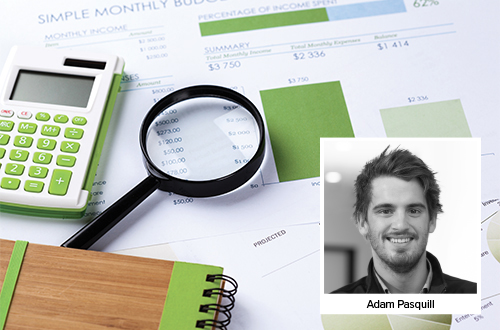The 3 hotspots the ATO are targeting this year.

This tax time, it is important to stay informed about the key focus areas identified by the Australian Taxation Office (ATO).
Associate Partner, Adam Pasquill provides information on these key areas, and what it could mean for you.
The ATO have pinpointed three prevalent mistakes made by taxpayers, which will be their focus this financial year. These include:
- Incorrectly claiming work-related expenses
- Inflating claims for rental properties
- Neglecting to disclose all sources of income when lodging your tax return
While these are the primary areas of focus, the ATO will also maintain a stringent review of record keeping, logbooks and capital gains, consistent with previous years.
For the purpose of the 2024-25 financial year, let’s have a look at the top three focus areas in a little more detail…
Work related expenses
In 2023, over 8 million Australians submitted claims for work-related deductions, with approximately half of those individuals claiming deductions for work conducted from their place of residence.
Last year, the ATO updated the fixed rate method for calculating deductions for working from home. The revisions expanded the scope of included expenses, raised the rate, and adjusted the record-keeping requirements.
These changes are now fully implemented for the current financial year. It is imperative to maintain detailed and comprehensive records to substantiate your claims, as is standard practice for any deduction.
Also, it is important that you retain records that document the specific number of hours worked from home (such as a calendar, diary, or spreadsheet) and the additional running costs incurred to claim a deduction (such as copies of electricity or internet bills).
There are three fundamental rules for claiming a deduction for any work-related expense:
- The expense must have been personally incurred and not reimbursed
- It must be directly related to generating income
- There must be a record, typically a receipt, to substantiate it.
Rental Properties
Rental properties continue to remain in the ATO’s sights. Landlords continue to make mistakes when it comes to repairs and maintenance deductions on rental properties, so the ATO will be keeping a close eye on this. They will also pay particular focus on claims that may have been inflated to offset increases in rental income to get a greater tax benefit.
Performing general repairs and maintenance on your rental property can be claimed as an immediate deduction. However, expenses which are capital in nature (like initial repairs on a newly purchased property and any improvements during the time you hold the property) are not deductible as repairs or maintenance.
It’s important to be aware of the ever-increasing data the ATO has access to; Stayz, AirBNB and other online booking platforms are now required to provide up-to-date information, including days available for rent, to the ATO. This extends to other third-party suppliers, including insurance funds that now issue annual policy information to the ATO for data-matching tax deductions.
Lastly, another area of particular concern for rental property owners when it comes to tax returns is the treatment of interest deductions. The ATO emphasises the importance of only claiming interest expenses directly associated with the portion of the loan used for purchasing the rental property.
Wait to lodge
The ATO advises against hastily submitting your tax return on or around July 1st. If you have received income from multiple sources, it is advisable to wait until this information is pre-filled in your tax return before filing. While some individuals may prefer completing their tax return early in order to check it off their to-do list and avoid thinking about it for another year, it is recommended to wait a few weeks before lodging to ensure accuracy.
In the month of July, the ATO commonly observes errors made by individuals who have overlooked including interest from banks, dividend income, payments from other government agencies, and contributions from private health insurers. Most taxpayers will have this information automatically pre-filled in their tax return by the end of July, streamlining the process and ensuring accuracy.
Before submitting your tax return, it is advisable to verify that your employer has marked your income statement as ‘tax ready’ and check if your pre-fill information is available in myTax. Taking these steps can prevent the need for later amendments, which could lead to unnecessary delays in processing.
In summary, the ATO means business! They will ensure you can only claim what you are entitled to, meaning that you must have valid substantiation documentation for each deduction. For further information from the ATO about this year’s tax focus areas, check out their website here:
Sources:
www.ato.gov.au
www.accountantsdaily.com.au
Article written by Adam Pasquill, Associate Partner & CPA
Highview Accounting & Financial – Cranbourne